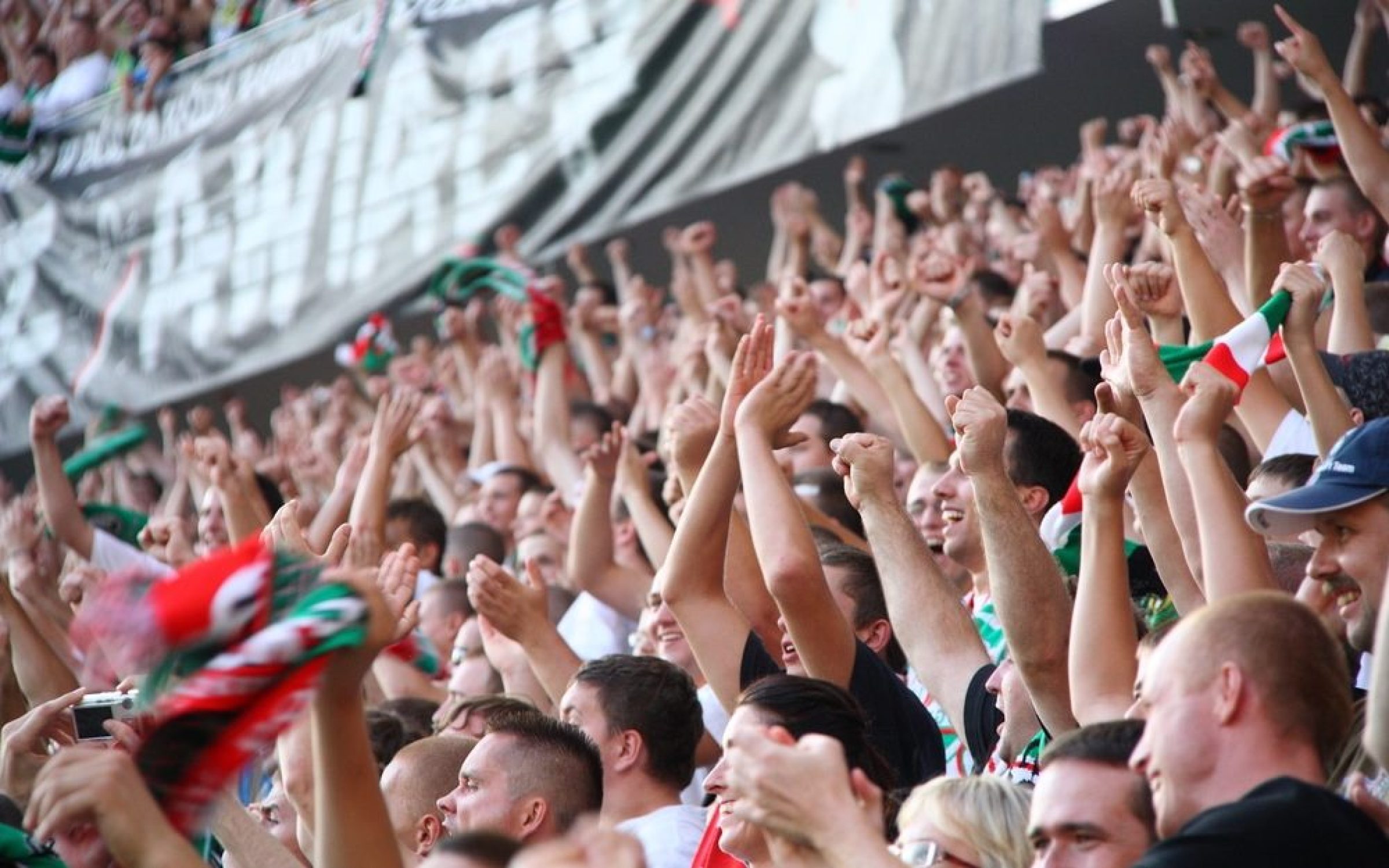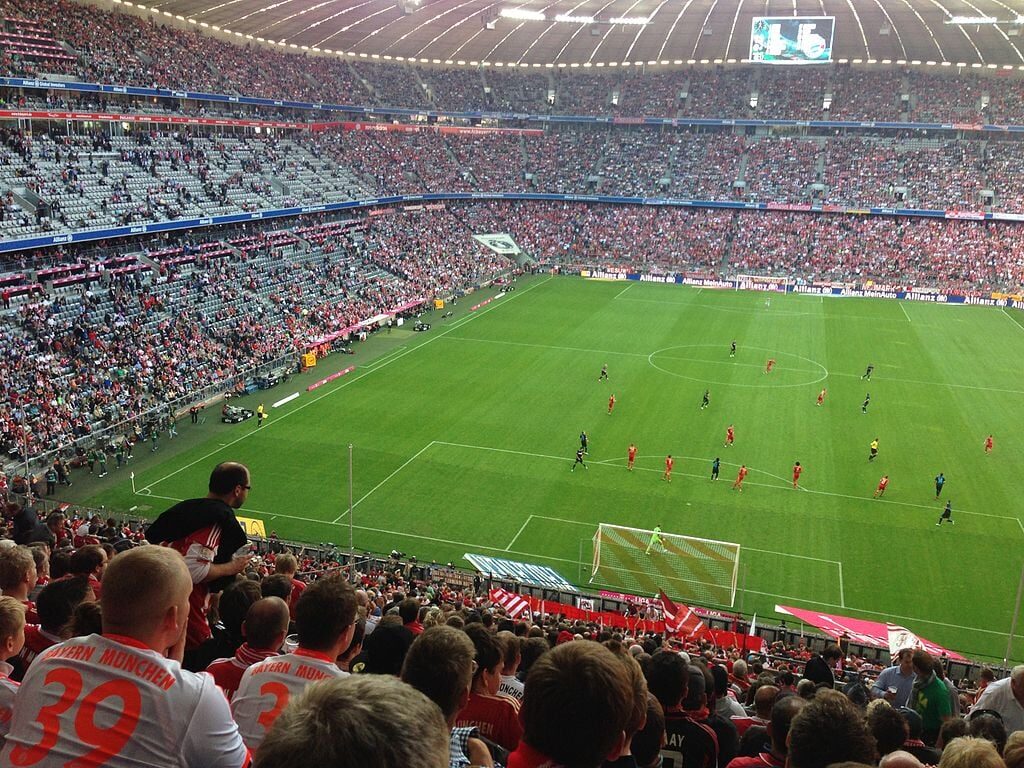
Football is more than just a game; it’s a cultural phenomenon that has the power to bring people together. The sport has a global following that transcends borders, language, and culture. Football fans are a passionate group of individuals who go to great lengths to show their support for their favorite clubs. But football fandom is more than just a display of loyalty to a team.
It can make a difference both on and off the field. In this article, we’ll explore the ways in which football fans impact the sport they love and how their passion can create positive change in the world.
Table of Contents
The Power of Football Fans on the Field

Source: thefootballlovers.com
Football fans have always had a significant influence on the game, whether they are playing on a paribet or live betting sites. They are the ones who create the atmosphere in the stadium, filling it with chants, songs, and cheers. The energy and passion of the fans can inspire players to perform at their best, even in the toughest of matches. Fans can also have a direct impact on the outcome of the game. A loud and supportive crowd can intimidate the opposing team, making it difficult for them to focus on the game.
In some cases, fans have even influenced the game’s rules and regulations. In the 1960s, for example, the famous “Jules Rimet Trophy” was stolen from a public exhibition in England. The trophy was eventually found by a dog named “Pickles.” As a result of this incident, FIFA introduced new security measures and regulations to protect the trophy during the 1966 World Cup.
Football fans have also been instrumental in changing the game’s administration. In 2018, when the European Super League was proposed, fans across Europe protested against it, and their voices were heard. The league was eventually scrapped due to the backlash, showing the power and influence of football fans.
The Power of Football Fans Off the Field
Football fandom is not limited to the stadium. Fans have a significant impact on society, both locally and globally. Football clubs and their supporters have been involved in numerous charitable and social initiatives. In 2011, for example, FC Barcelona and UNICEF signed a partnership agreement to improve the lives of vulnerable children worldwide. The partnership has raised millions of dollars for UNICEF’s programs.
Football fans have also been involved in humanitarian efforts. In 2015, when a massive earthquake struck Nepal, a group of football fans from Germany organized a charity match to raise money for the relief effort. The match raised over €100,000, which was donated to the German Red Cross.
Football fans have also been involved in political and social movements. In Egypt, for example, football fans played a significant role in the 2011 revolution. The “Ultras” were a group of football ultra-fans at the forefront of the revolution, using their passion for football to bring about political change.
The Business of Football Fandom

Source: thestadiumbusiness.com
Football fandom is not just a cultural phenomenon; it’s also a big business. Football clubs and brands leverage fan loyalty to generate revenue and build their brand. Football clubs sell merchandise, tickets, and broadcasting rights, contributing to revenue.
Brands also partner with football clubs and players to reach a wider audience. For example, Nike and Adidas are the two leading sports brands globally, with both companies sponsoring several football clubs and players. The sponsorship deals are not just about branding; they also allow the brands to showcase their latest products and innovations.
The Evolution of Football Fandom
Football fandom has evolved significantly over the years. In the past, football fandom was primarily a local phenomenon. Fans supported their local clubs, and rivalries were often based on geographical location. However, with the rise of global media and communication, football fandom has become a global phenomenon. Fans can now support clubs worldwide, and rivalries are no longer limited to geographical boundaries.
How to Build a Successful Football Fan Community Online

Source: yourmembership.com
The internet has revolutionized the way football fans interact with each other. Online communities provide a platform for fans to connect and share their passion for the sport. Building a successful football fan community online requires a clear strategy and an understanding of the target audience.
Platforms like Facebook and Twitter are excellent for building online communities, but they require different approaches. Facebook groups are ideal for building a community around a specific club or topic, while Twitter is better suited for engaging with fans and sharing news and updates.
Conclusion
Football fandom is more than just a display of loyalty to a team. It’s a cultural phenomenon that can unite people and create positive change in the world. Football fans have a significant impact on the sport both on and off the field. They create the atmosphere in the stadium, influence the game’s rules and regulations, and have been involved in social and charitable initiatives.
The psychology behind football fandom is complex and varied, and it positively impacts mental health. The future of football fandom is full of possibilities, with technology playing an increasingly important role. Football fandom is an enduring power that will continue bringing people together and inspiring positive change.







